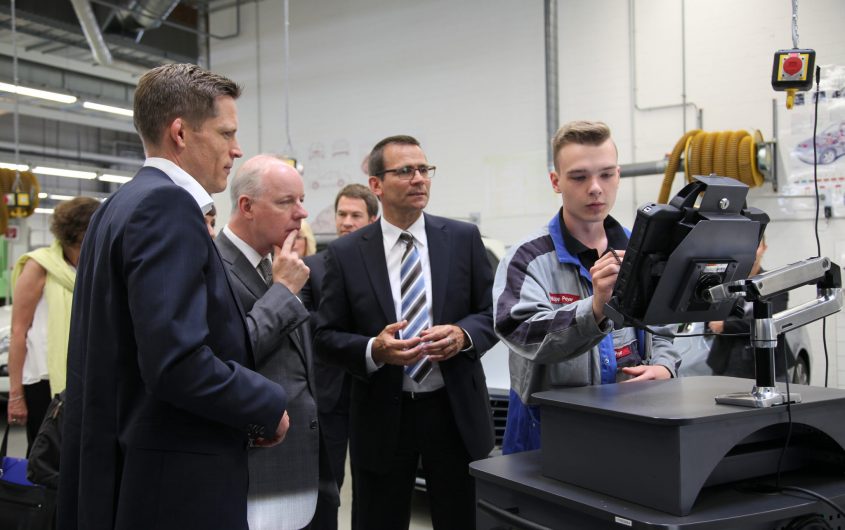
U.S. Embassy Berlin
From Shared Commitment to Shared Strategy: Encouraging Employer Investment in Workers’ Skills

Sidney Rothstein
Williams College
Sidney Rothstein is Assistant Professor of Political Science at Williams College. Rothstein studies the political economy of wealthy democracies in comparative perspective, focusing on Europe and the United States, and his current research examines the politics of digital transformation. He is co-editor (with Tobias Schulze-Cleven) of Imbalance: Germany’s Political Economy after the Social Democratic Century (Routledge, 2021), author of Recoding Power: Tactics for Mobilizing Tech Workers (Oxford University Press, 2022), and his research has appeared in the British Journal of Industrial Relations, German Politics, Perspectives on Politics, Review of International Political Economy, Socio-Economic Review, and Studies in American Political Development. Rothstein holds a BA in Political Science from Reed College and a PhD in Political Science from the University of Pennsylvania.
Like every economic transition preceding it, the digital transformation requires that workers update their skills. Employers on both sides of the Atlantic insist there is a shortage of precisely the skills necessary for driving economic growth in the twenty-first century, namely those related to information and computer technology (ICT). The “skills shortage” is likely more performative than descriptive, but that is no reason to ignore it. Regardless of whether workers actually lack the skills to fill ICT jobs, ensuring sustainable growth requires that all workers constantly update their skills throughout their careers. Policymakers in Europe and the U.S. should take employers at their word that there is a skills shortage, and they should be clear about the solution: employers must invest in their workers’ skills.
Germany and the U.S. make an odd couple when it comes to education and training policies. Famous for its dual-track vocational education, Germany’s system could hardly be more different than the U.S.’ school-based system. Nonetheless, the two countries bring complementary strengths to addressing the common challenge of promoting sustainable growth in the digital age. Germany has succeeded in building a decentralized system that secures employer support for and participation in coordinated training programs. While firms in the U.S. are less likely to collaborate with public authorities, they have developed innovative programs to update workers’ skills at the firm level. In the digital age, skills shift much too rapidly to be addressed by traditional avenues of school-based training, but firms face coordination problems and financial hurdles that prevent them from updating their workers’ skills fast enough to remain competitive.
Governments on both sides of the Atlantic recognize these challenges, and policymakers in both Germany and the U.S. have declared their commitment to confronting the digital transformation. Shared rhetorical commitments should be transformed into shared policy programs, and the current juncture represents a promising opportunity to do so. Germany managed to form a government this year, but the months-long struggle reflects widespread doubts about the major parties’ ability to govern. To restore voters’ confidence, the Grand Coalition needs to introduce bold policies to address anxieties about the future. In the U.S., the administration’s focus on upsetting the status quo also supports a bold approach to policy.
To effectively promote growth in the digital age, employers need to invest in workers’ skills, and history shows they will do so only if encouraged (or “nudged”) by public policy. Germany’s historical system of dual-track vocational education was based on a complex of “beneficial constraints” that incentivized employers to protect their company’s long-term interests by investing extensively in workers’ skills. With the decline of union density and employers’ membership in industry associations, those beneficial constraints have begun to dissolve. In the early 2000s, policymakers attempted to fix the system by introducing a training levy, which would have reinvigorated employers’ investments in skills. The bill failed, but the attention it received from employers indicates its potential effectiveness.
Policymakers in Germany and the U.S. should discuss common approaches to a modern-day training levy. Such a measure would encourage firms to train not just apprentices at the beginning of their careers, but also existing employees, whose skills require constant updating. The increasingly transnational character of commerce, particularly in the ICT sectors driving the digital transformation, demands that a policy framework be identified that is as effective in Germany as in the U.S.








